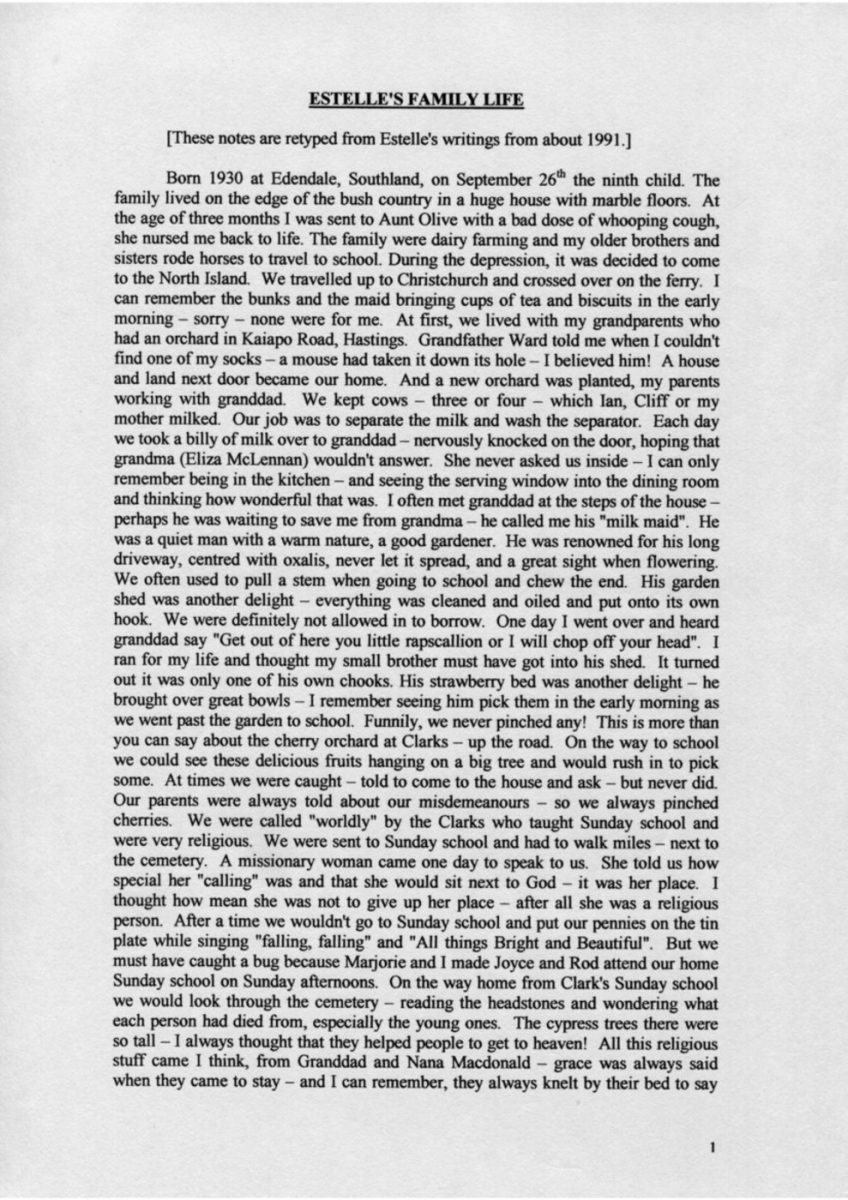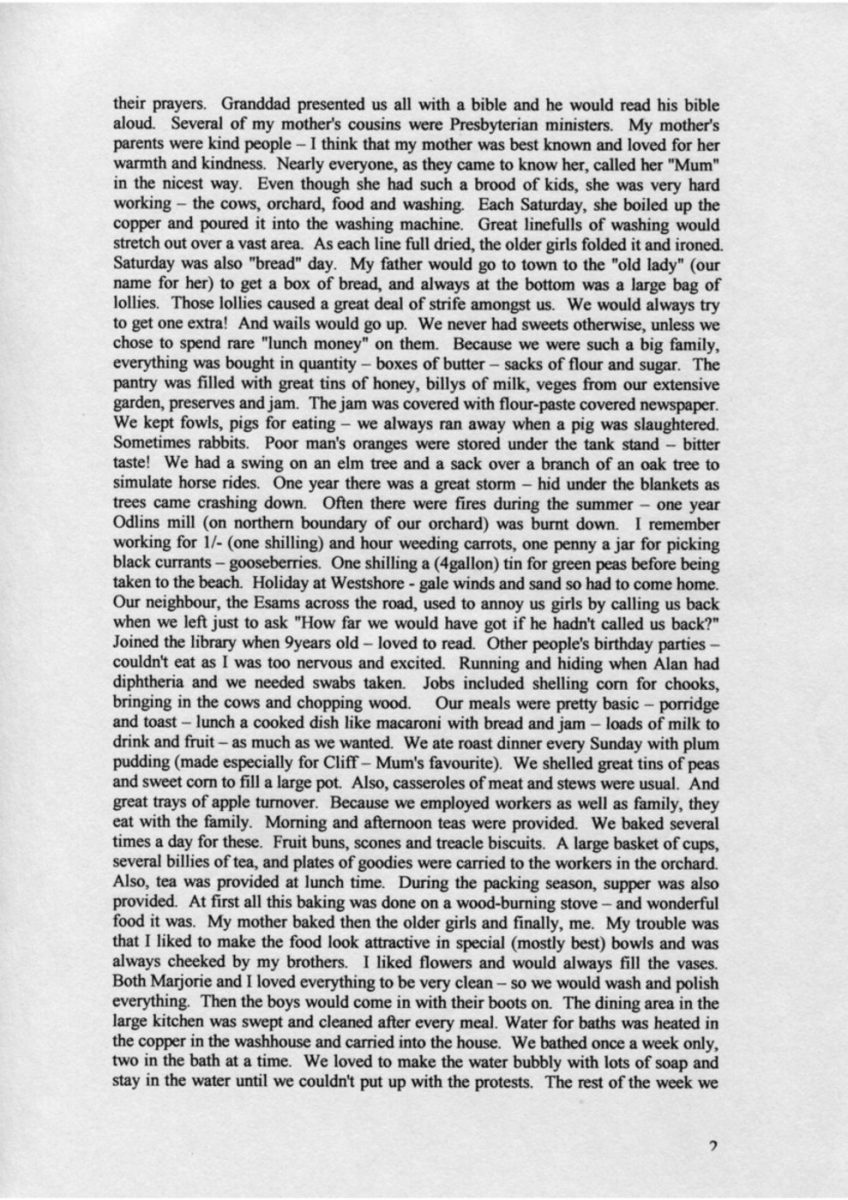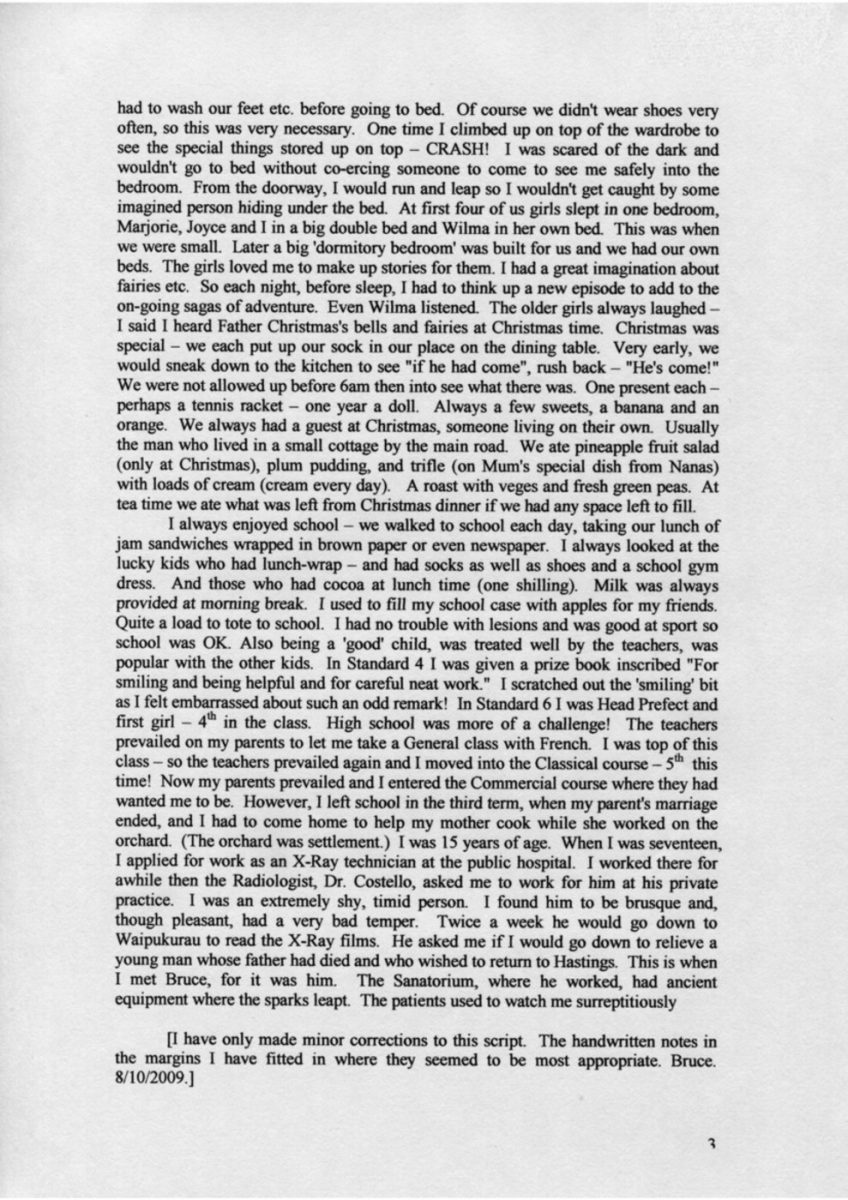Page 3
had to wash our feet etc. before going to bed. Of course we didn’t wear shoes very often, so this was very necessary. One time I climbed up on top of the wardrobe to see the special things stored up on top – CRASH! I was scared of the dark and wouldn’t go to bed without co-ercing someone to come to see me safely into the bedroom. From the doorway, I would run and leap so I wouldn’t get caught by some imagined person hiding under the bed. At first four of us girls slept in one bedroom, Marjorie, Joyce and I in a big double bed and Wilma in her own bed. This was when we were small. Later a big ‘dormitory bedroom’ was built for us and we had our own beds. The girls loved me to make up stories for them. I had a great imagination about fairies etc. So each night, before sleep, I had to think up a new episode to add to the on-going sagas of adventure. Even Wilma listened. The older girls always laughed – I said I heard Father Christmas’s bells and fairies at Christmas time. Christmas was special – we each put up our sock in our place on the dining table. Very early, we would sneak down to the kitchen to see “if he had come”, rush back – “He’s come!” We were not allowed up before 6am then into see what there was. One present each – perhaps a tennis racket – one year a doll. Always a few sweets, a banana and an orange. We always had a guest at Christmas, someone living on their own. Usually the man who lived in a small cottage by the main road. We ate pineapple fruit salad (only at Christmas), plum pudding, and trifle (on Mum’s special dish from Nanas) with loads of cream (cream every day). A roast with veges and fresh green peas. At tea time we ate what was left from Christmas dinner if we had any space left to fill. I always enjoyed school – we walked to school each day, taking our lunch of jam sandwiches wrapped in brown paper or even newspaper. I always looked at the lucky kids who had lunch-wrap – and had socks as well as shoes and a school gym dress. And those who had cocoa at lunch time (one shilling). Milk was always provided at morning break. I used to fill my school case with apples for my friends. Quite a load to tote to school. I had no trouble with lesions [lessons] and was good at sport so school was OK. Also being a ‘good’ child, was treated well by the teachers, was popular with the other kids. In Standard 4 I was given a prize book inscribed “For smiling and being helpful and for careful neat work.” I scratched out the ‘smiling’ bit as I felt embarrassed about such an odd remark! In Standard 6 I was Head Prefect and first girl – 4th in the class. High school was more of a challenge! The teachers prevailed on my parents to let me take a General class with French. I was top of this class – so the teachers prevailed again and I moved into the Classical course – 5th this time! Now my parents prevailed and I entered the Commercial course where they had wanted me to be. However, I left school in the third term, when my parent’s marriage ended, and I had to come home to help my mother cook while she worked on the orchard. (The orchard was settlement.) I was 15 years of age. When I was seventeen, I applied for work as an X-Ray technician at the public hospital. I worked there for awhile then the Radiologist, Dr. Costello, asked me to work for him at his private practice. I was an extremely shy, timid person. I found him to be brusque and, though pleasant, had a very bad temper. Twice a week he would go down to Waipukurau to read the X-Ray films. He asked me if I would go down to relieve a young man whose father had died and who wished to return to Hastings. This is when I met Bruce, for it was him. The Sanatorium, where he worked, had ancient equipment where the sparks leapt. The patients used to watch me surreptitiously
[I have only made minor corrections to this script. The handwritten notes in the margins I have fitted in where they seemed to be most appropriate. Bruce. 8/10/2009. ]














Do you know something about this record?
Please note we cannot verify the accuracy of any information posted by the community.